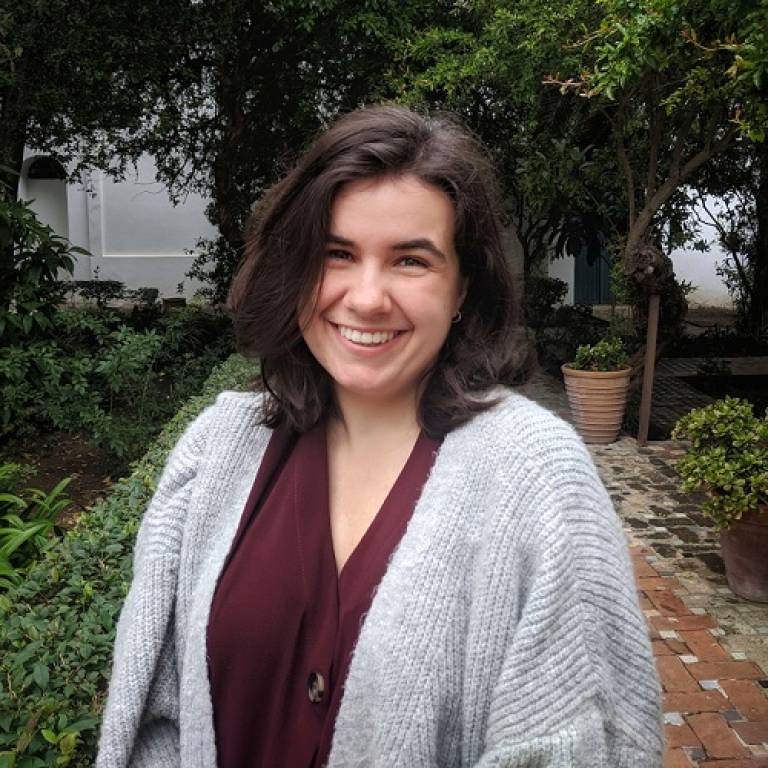Meet our Research Scholarship winners: Marie Middleton
24 July 2020
Find out more about Marie and her research in her spotlight interview below.

1. Hi Marie, congratulations on winning a UCL research scholarship! Tell us a bit about yourself…
Thank you! I grew up in the Netherlands and I am riding out the pandemic here too. I have called London (and UCL) my home for the past four years. It’s here that I discovered my love for playing rugby (shout out to UCLWRFC), and digging myself into holes (literally).
2) How did you feel when you found out you had been awarded the scholarship?
Thank goodness all that student debt isn’t a complete waste!
(.....Or am I jumping the gun?)
3) Tell us a bit about your research.
My research focusses on the hotly contentious issue of how migration impacts cities and societies. In particular, how do migrants integrate with existing communities, and how do they transform socio-cultural, religious and economic practices? Archaeology provides unique insight into this debate through its deep history perspective and its focus on what people produced and consumed every day. My project examines how and why cities were transformed after the Arab conquest of North Africa (7-8th century AD) when new Muslim soldiers, elites and merchants migrated into the region. It uses zooarchaeology as a lens to understand the impact of migration and Islam on culinary trends, food taboos and farming techniques. I intend on analysing the animal bone assemblage from the neglected Islamic past of Volubilis, a UNESCO World Heritage site. In the 7th-9th centuries, this Roman city was divided into a Berber settlement, Arab garrison town and headquarters of Idris I, the founder of the Moroccan state. As the only North African site with archaeological evidence of this formative period and three distinct communities, studying these rich animal bone deposits will reveal how regime change, migrants and their new faith transformed social, religious, and economic life in Morocco’s first capital city.
4) Why did you choose to study at UCL?
I am already very familiar with UCL, having been at the Institute of Archaeology for the past four years. One of the main reasons I chose UCL is the good working relationships I have built up with my supervisors. The library and lab resources offered by the Institute were also a huge draw, as are the opportunities provided by its central London location.
5) What song would you like to contribute to the Joint Faculties lockdown playlist?
Chonks by Snarky Puppy is an absolute banger.
Find out more about UCL Scholarships and Funding
 Close
Close

